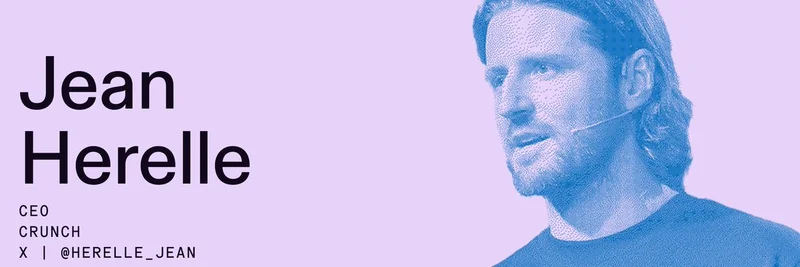In the fast-evolving world of blockchain and crypto, few ideas hold as much promise for creators as tokenizing intellectual property (IP). That's exactly what SY Lee, co-founder of Story Protocol, is pushing forward. In a recent episode of the "When Shift Happens" podcast hosted by Kevin from @KevinWSHPod, Lee breaks down how his platform could unlock an $80 trillion creative asset class that's long been dominated by big platforms at the expense of individual creators.
The Broken Creator Economy and How We Got Here
Lee's journey started in media, where he saw firsthand how tough it is for creators to capture the value they generate. After studying at Oxford, he experimented with fixing journalism's ad woes through subscriptions and crowdfunding—solid ideas, but ahead of their time. Then came Radish Fiction, a mobile app for serialized stories with micro-payments. It took seven years of hustle, but it paid off big: acquired by Kakao for $440 million.
But instead of kicking back, Lee zeroed in on a bigger problem. Creators fuel culture—think writers, musicians, filmmakers—but platforms like Netflix rake in the billions. Take "Squid Game": massive win for the streamer, peanuts for the creator. This imbalance is everywhere, from music to games to patents. And with AI exploding, it's getting worse. AI tools remix human creativity at scale, but original creators often get zilch.
Lee puts it plainly: humans have always remixed ideas, but AI makes it effortless. The key is making that process legal, fair, and profitable for everyone involved. Enter Story Protocol, a blockchain-based solution that's all about turning IP into programmable, tokenizable assets.
Tokenizing IP: Liquidity and Fair Play
At its core, Story Protocol does two big things: tokenizes IP for easy trading and "programs" it so usage rules are automated via smart contracts. Tokenization means treating IP like any other asset—buy, sell, or finance it. Music catalogs are a prime example; they're already like real estate, yielding steady income from streams. Big players like KKR and Blackstone are buying in because global streaming growth in markets like India and Africa is just heating up.
With Story, investors can grab slices of these rights, earning yields and potential upside through tokens. Lee compares owning a hit song to prime Manhattan property, but with global listeners as tenants. This isn't niche stuff—the World Intellectual Property Organization pegs the IP market at trillions, covering everything from characters and brands to AI training data.
On the usage side, licensing today is a nightmare: lawyers, delays, opacity. Story flips that with machine-readable licenses anchored in copyright law. IP becomes like Lego bricks with built-in rules. Creators set terms, and anyone—people, apps, or AIs—can remix, publish, and pay royalties automatically on-chain. Imagine building a game with licensed characters or training an AI on datasets where contributors get paid. It's a step toward an "IP Lego land" where remixing drives innovation without lawsuits.
Extending to AI Data and Real-World Impact
Story isn't just for art; it's for data too. Training AI models needs tons of high-quality inputs, like videos for robotics. Traditional methods are slow and often unethical. Story lets people upload their data—voice, video—with on-chain terms, then earn when companies license it. A recent text-to-speech campaign pulled in hundreds of thousands of contributors and millions of submissions in weeks. The goal? Rebuild the internet for AI, but with opt-in economics where creators share the wealth.
This ties directly into meme culture, a cornerstone of crypto. Memes are the ultimate remix—think how Pepe or Dogecoin evolve through community tweaks. Story could make meme IP tokenizable, letting original creators monetize derivatives while keeping the fun alive. No more piracy debates; just seamless, on-chain royalties that boost liquidity and adoption.
Challenges and the Road Ahead
Lee's realistic about hurdles. Crypto folks chase moonshots, but IP is more like steady infrastructure. Building liquidity for yield-bearing assets means setting right expectations and venues. Convincing protective IP owners to open up? Show them how programmable licensing grows their revenue pie. For AI data, quality and demand from model builders are key.
Economically, Story's protocol fees are low now to attract developers and volume—smart for early stages. Success hinges on apps and IPs on the platform making real money. If that happens, the flywheel spins: more builders, maturing economics.
Lee's founder mindset shines through: long-term optimism paired with short-term caution. A near-miss at Radish taught him never to count unbanked cash. His drive? Not the exit money, but the thrill of making things work and creating impact.
Why This Matters for Crypto and Beyond
Story Protocol could shift culture from closed silos to open, blockchain-powered systems. Creators fundraise from fans, license on their terms, and turn remixing into collaboration. AI builders pay fairly for data. For meme enthusiasts and blockchain practitioners, it's a game-changer—tokenizing cultural assets like memes could spark new token economies, blending fun with fair economics.
If you're into crypto podcasts, check out the full episode on When Shift Happens or your go-to platform. It's packed with insights on how blockchain is fixing real-world creator pains. Stay tuned as Story Protocol evolves; this could be the next big unlock in the creative space.




